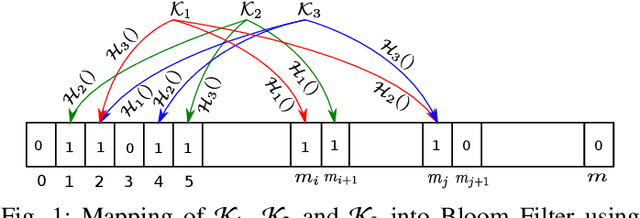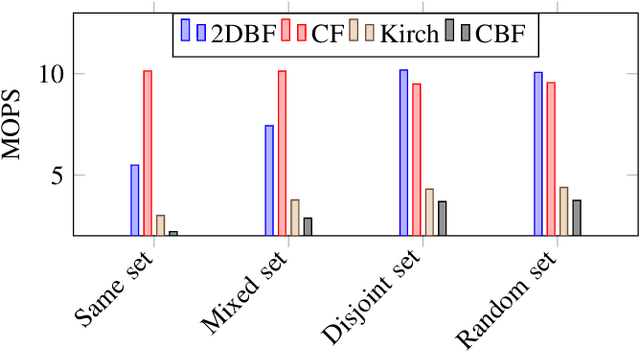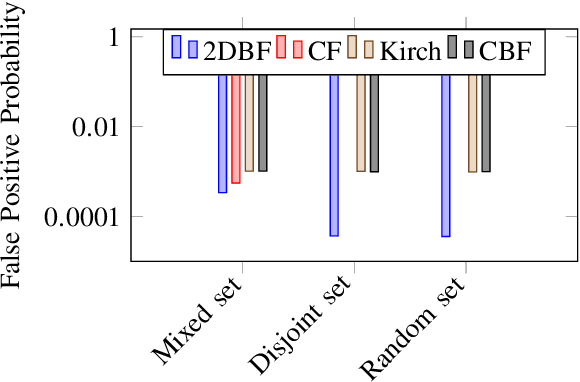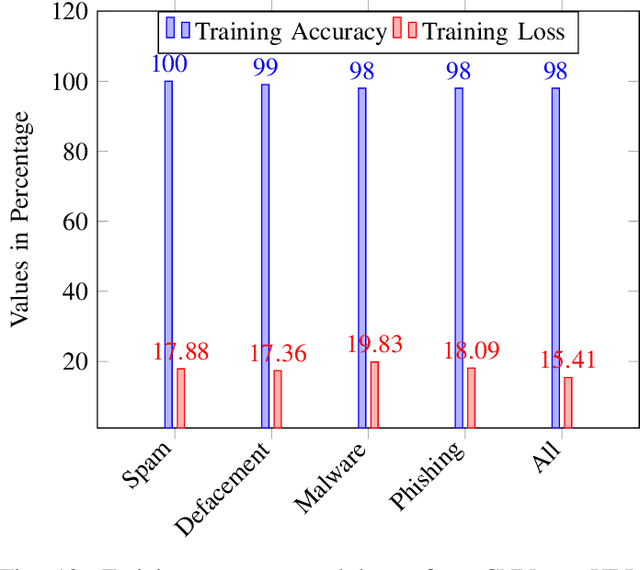deepBF: Malicious URL detection using Learned Bloom Filter and Evolutionary Deep Learning
Paper and Code
Mar 18, 2021



Malicious URL detection is an emerging research area due to continuous modernization of various systems, for instance, Edge Computing. In this article, we present a novel malicious URL detection technique, called deepBF (deep learning and Bloom Filter). deepBF is presented in two-fold. Firstly, we propose a learned Bloom Filter using 2-dimensional Bloom Filter. We experimentally decide the best non-cryptography string hash function. Then, we derive a modified non-cryptography string hash function from the selected hash function for deepBF by introducing biases in the hashing method and compared among the string hash functions. The modified string hash function is compared to other variants of diverse non-cryptography string hash functions. It is also compared with various filters, particularly, counting Bloom Filter, Kirsch \textit{et al.}, and Cuckoo Filter using various use cases. The use cases unearth weakness and strength of the filters. Secondly, we propose a malicious URL detection mechanism using deepBF. We apply the evolutionary convolutional neural network to identify the malicious URLs. The evolutionary convolutional neural network is trained and tested with malicious URL datasets. The output is tested in deepBF for accuracy. We have achieved many conclusions from our experimental evaluation and results and are able to reach various conclusive decisions which are presented in the article.
 Add to Chrome
Add to Chrome Add to Firefox
Add to Firefox Add to Edge
Add to Edge